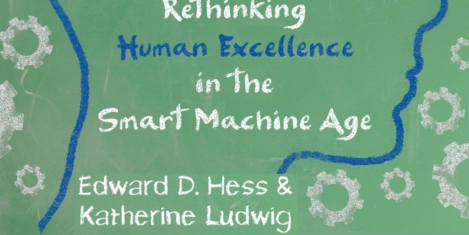February 23, 2017
Digital transformation and flexible workforce will help drive growth, say senior managers 0
 Implementing new technologies over the next 12 months is of primary importance for senior managers, with nearly two-fifths of finance directors saying digital transformation is one of their greatest priorities. Against a backdrop of economic uncertainty, chief financial officers (CFOs) are focusing on increasing profitability (41 percent) and driving overall company growth (39 percent) in the year ahead, according to research from, Robert Half Management Resources which claims that CFOs and finance directors (FDs) will assume more responsibility for balancing traditional financial responsibilities with developing business strategy. The use of temporary and interim professionals also looks set to continue with a third of CFOs and FDs planning to use temporary staff for business transformation projects to either fill vacated positions or support active expansion. In the long-term, 31 percent of finance executives plan to actively add new permanent positions to implement the company’s digitisation and automation efforts over the next 12 months.
Implementing new technologies over the next 12 months is of primary importance for senior managers, with nearly two-fifths of finance directors saying digital transformation is one of their greatest priorities. Against a backdrop of economic uncertainty, chief financial officers (CFOs) are focusing on increasing profitability (41 percent) and driving overall company growth (39 percent) in the year ahead, according to research from, Robert Half Management Resources which claims that CFOs and finance directors (FDs) will assume more responsibility for balancing traditional financial responsibilities with developing business strategy. The use of temporary and interim professionals also looks set to continue with a third of CFOs and FDs planning to use temporary staff for business transformation projects to either fill vacated positions or support active expansion. In the long-term, 31 percent of finance executives plan to actively add new permanent positions to implement the company’s digitisation and automation efforts over the next 12 months.

























 The
The 







February 21, 2017
What you need to know about changes to business rates and lease renewals 0
by Alex Watt • Comment, Facilities management, Legal news, Property
(more…)